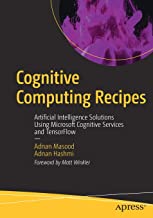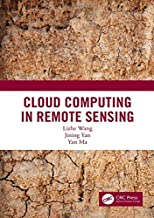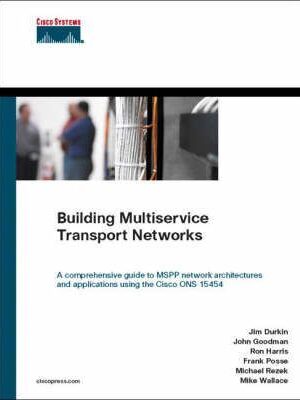Cognitive Computing Recipes: Artificia Intelligence Solutions Using Microsoft Cognitive Services & Tensor Flow
Original price was: ₹3,236.58.₹2,589.26Current price is: ₹2,589.26.
ISBN: 9781484241059
Author/Editor: Adnan Masood
Publisher: Springer
Year: 2019
1 in stock (can be backordered)
Description
Solve your AI and machine learning problems using complete and real-world code examples. Using a problem-solution approach, this book makes deep learning and machine learning accessible to everyday developers, by providing a combination of tools such as cognitive services APIs, machine learning platforms, and libraries.
Along with an overview of the contemporary technology landscape, Machine Learning and Deep Learning with Cognitive Computing Recipes covers the business case for machine learning and deep learning. Covering topics such as digital assistants, computer vision, text analytics, speech, and robotics process automation this book offers a comprehensive toolkit that you can apply quickly and easily in your own projects. With its focus on Microsoft Cognitive Services offerings, you?l see recipes using multiple different environments including TensowFlow and CNTK to give you a broader perspective of the deep learning ecosystem.
What You Will Learn
Build production-ready solutions using Microsoft Cognitive Services APIs
Apply deep learning using TensorFlow and Microsoft Cognitive Toolkit (CNTK)
Solve enterprise problems in natural language processing and computer vision
Discover the machine learning development life cycle ?from formal problem definition to deployment at scale
Who This Book Is For
Software engineers and enterprise architects who wish to understand machine learning and deep learning by building applications and solving real-world business problems.
Additional information
| Weight | 0.839 kg |
|---|
Product Properties
| Year of Publication | 2019 |
|---|---|
| Table of Contents | Chapter 1: Democratization of AI using Cognitive ServicesChapter Goal: Provide an overview of the current AI and machine learning landscape; discuss machine learning and deep learning platforms including Microsoft, AWS, and GCP. Discuss Watson, H2O and cloud offerings for powerful artificial intelligence algorithms for vision, speech, language, and knowledge. Explain how these tools help providing algorithms, APIs, development and training toolkits, data, as well as computing power to design, train, and deploy models into applications, processes, and other machines for prediction or classification. Provide coverage of popular machine learning and deep learning platforms and frameworks with machine learning development lifecycle.No of pages - 25 - 30Sub -Topics1. Democratization of Artificial Intelligence 2. Tribes of Machine Learning & Deep learning 3. A business case for Artificial Intelligence4. AI in the enterprise - How Machine learning is impacting different industry sectors and what are the opportunities5. On-Premise Platforms and Libraries - An Enterprise Perspective6. Head in the cloud - Cognitive Services offerings in the cloud. Chapter 2: Building Conversational Interfaces Chapter Goal: Introduce building conversational interfaces with practical recipes i.e. how to perform sentiment analysis for customer service, how to enable natural and contextual interaction, multi-turn dialogs, from simple chatbots to advanced systems that can network with humans and run in co-pilot mode to assist with supervised learning. No of pages: ~40 - 50Sub - Topics 1. Bot Frameworks Overview and conversational interfaces.2. Building Conversational Bots using Cognitive Services & Bot Framework3. Building personas, conversations design, entity and intent detection.4. Image based Q&A. Building FAQs and omni-channel interfaces Chapter 3: Seeing is Believing - Custom VisionChapter Goal: Computer Vision API are used to extract rich information from images about their visual contents, which can be used for various business use cases. From reading text in images to recognizing celebrities and landmarks and analyzing videos in near real-time, Microsoft cognitive service and custom vision models delivers real-business value to everyday use cases. No of pages : ~ 35-40Sub - Topics: 1. Using Cognitive Services Vision API for object detection and tagging2. OCR, and hand writing recognition. MNIST with Keras and Tensorflow3. Hot Dog & Not Hot-dog - Custom Vision service for training your own models Chapter 4: Text Analytics - The Dark Data Frontier Chapter Goal: This chapter introduces the reader with recipes around text analytics including unstructured text processing, text summarization, Natural Language Generation, Natural language processing (NLP) i.e. understanding of sentence structure and meaning, sentiment analysis, intent detection through API, and machine learning methods. This chapter also covers Stanford AI Lab's Deep Dive, Snorkel and Data Programming Model.No of pages: ~ 25-30Sub - Topics: 1. NLP, NLU, Parsing, Tokenization, Stemming, Term Reduction, Topic Modeling, POS Tagging using current frameworks including CoreNLP, NLTK, and Cognitive Toolkit.2. Key phrase. Language, and sentiment analysis using Text Analytics API3. Text Classification, Summary generation, Similarity analysis, clustering, semantic and sentiment analysis using Word2Vec, spaCy, Genism, and TensorFlow. Chapter 5: Cognitive RPA - Automate This! Chapter 6: Knowledge Management and Intelligent Search Chapter 7: Predictive Analytics in Operations Chapter 8: AI use cases in Industry Appendix A: Microsoft Cognitive Toolkit Cheatsheet Appendix B: Tensorflow Getting Started Guide with TFLearn and Keras |
| Author | Adnan Masood |
| ISBN/ISSN | 9781484241059 |
| Binding | Paperback |
| Edition | 1 |
| Publisher | Springer |
You must be logged in to post a review.






Reviews
There are no reviews yet.